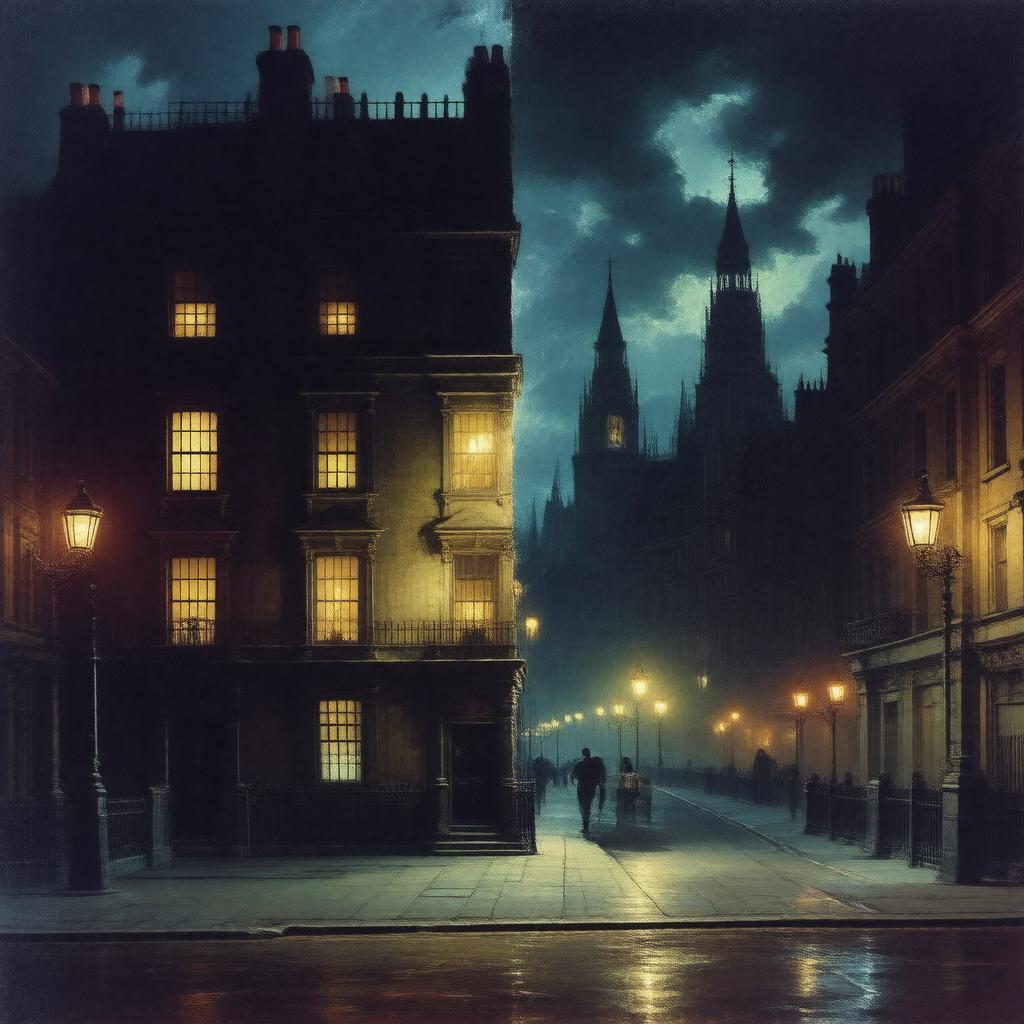Prompt
"Generate an image of a dark and moody Victorian-era London street scene at night, with a split facade of a building in the background, one side bright and respectable, the other side dark and ominous, symbolizing the duality of human nature, inspired by the musical Jekyll & Hyde, with a subtle hint of the characters Dr. Jekyll and Mr. Hyde in the shadows, in a Gothic and eerie style."

